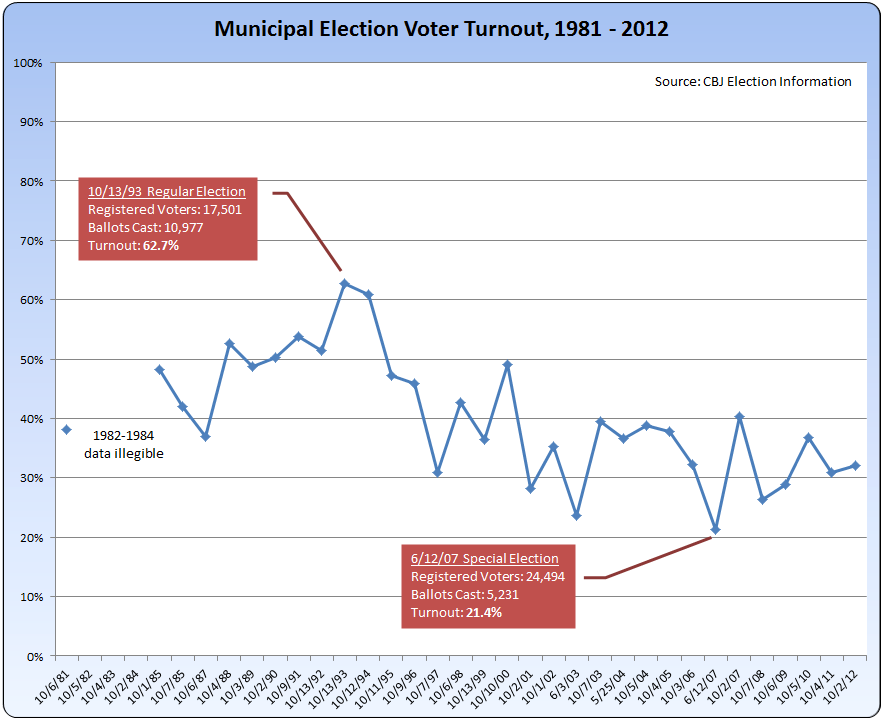Chances are, if you’re registered to vote in Juneau, you didn’t the last time school board seats, candidates for the Assembly, municipal debt or sales tax extensions were on the ballot.
In the last municipal election in October, less than a third of the people registered to vote in Juneau actually cast a ballot, and that’s not unusual.

(Graphic by Jeremy Hsieh/KTOO)
“It’s election after election, and, you know, there’s definitely a way to improve it. We just have to find the right way,” said Assemblyman Randy Wanamaker.
He thinks voting by mail could improve turnout. Ballots would be mailed directly to registered voters and cast by mail, like in Oregon or with Native corporations’ shareholder elections. There wouldn’t be any polling places.
City Clerk Laurie Sica, whose duties include running municipal elections, was the impetus behind a 2007 ordinance that empowered the Assembly to hold local elections by mail. All it takes is a simple majority vote, though it’s never been done.
Sica was jazzed about the possibility of holding elections by mail in 2007, especially for special elections when there’s less notice to hire poll workers. But now, Sica says she prefers the status quo, so that Juneau stays consistent with the state’s election practices.
“In terms municipal elections, I think anything we can do to improve voter turnout — once people start voting I think they’ll continue voting, and that’s what we want to do. And if we can make it easier for them to participate, then I think it’s worth the cost,” Wanamaker said.
Cost estimates Sica put together in 2007 suggested that increased ballot printing and mailing costs would far outweigh savings in election workers’ pay. In 2007, she estimated it cost $41,800 to hold a traditional election, but $59,800 to hold it by mail.
Today, the cost difference between holding an election by mail may be even greater because of higher postage rates, and the possible need for signature recognition software. Sica says she has more research to do.
Coincidentally, 2007 was also the three-decade low for voter turnout. In that year’s June special election, only 5,231 ballots were cast out of 24,494 registered voters, about 21 percent. Ballot propositions in that election were the last in a series of multimillion dollar decisions put to voters related to the construction of Thunder Mountain High School.
Proposition 2 passed with a 70 vote margin. In terms of turnout, that’s less than one-third of 1 percent, or about a sixth of Juneau-Douglas High School’s 2007 senior class. If Proposition 2 had gone the other way, Thunder Mountain High School might not have a track and artificial turf field today, and taxpayers would have $5 million less in debt to repay.
When Wanamaker brought up vote-by-mail at the Assembly’s last regular meeting, City Manager Kim Keifer said she would put some information together for the Assembly to review at an upcoming meeting.
Juneau’s municipal elections are held the first Tuesday in October. Three seats on the Assembly and two seats on the Juneau School Board are up. Candidates can file to run beginning Aug. 2. Information about running for local office is available at http://www.juneau.org/clerk/elections/.
